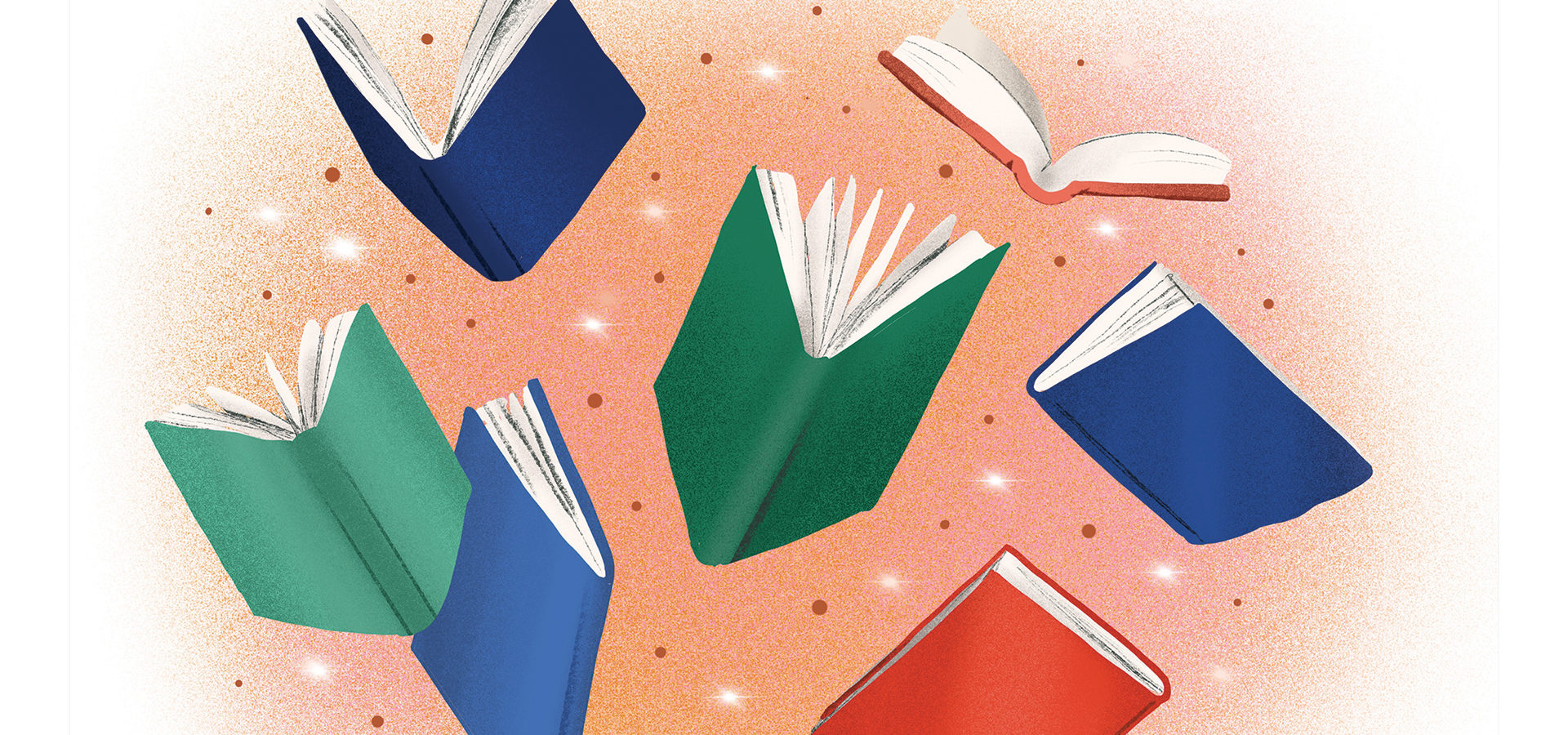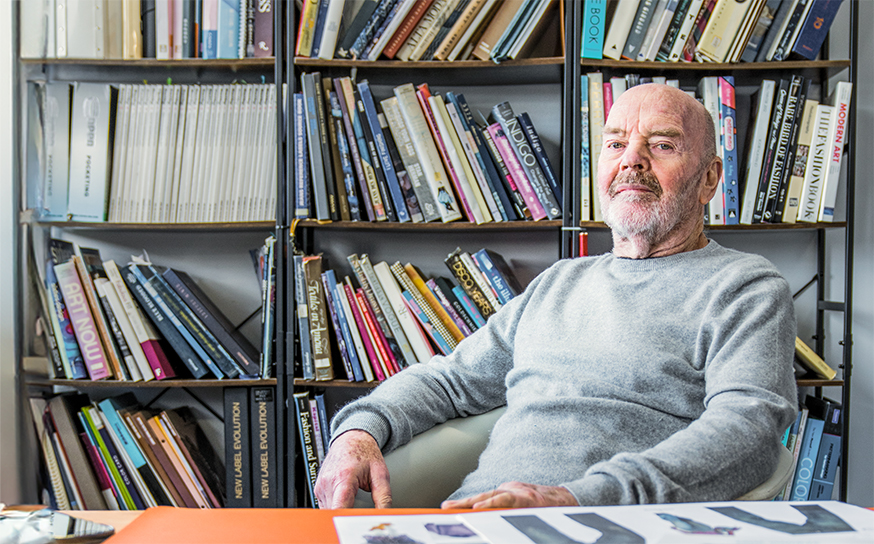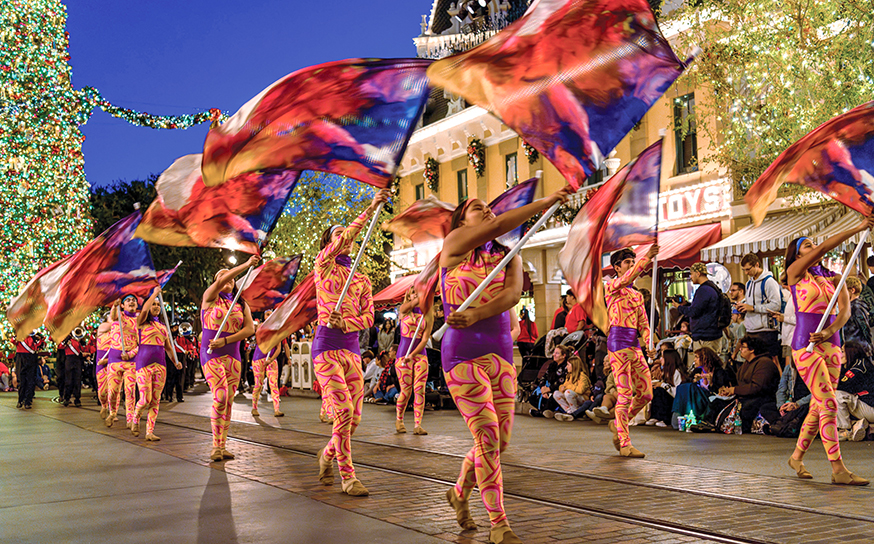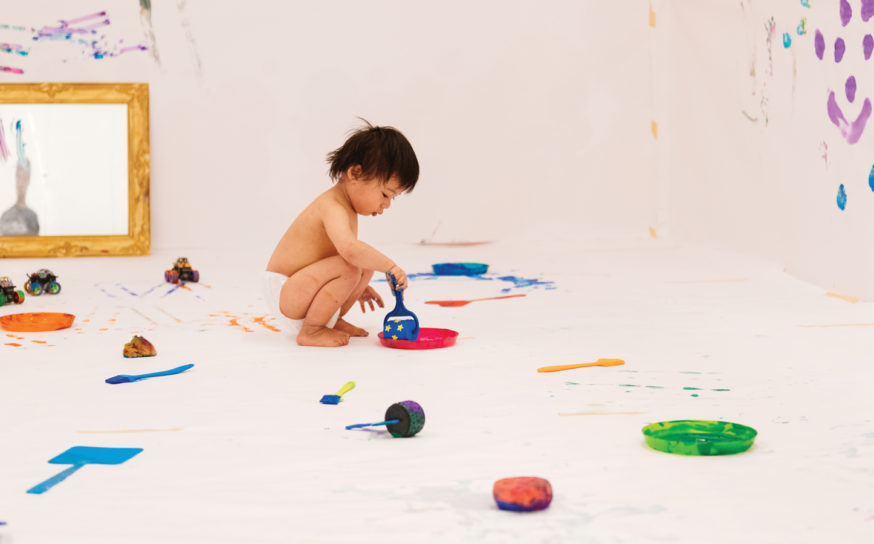
A Teen Weighs in on Book Banning in Schools
Uneasy reading.
-
CategoryPeople
-
Written bySpencer Davis
-
Illustrated byYuiko Sugino
In ninth grade, I read the book Night by Elie Wiesel, recounting his horrific experiences in a concentration camp during the Holocaust. Wiesel recognized that he had an obligation to bear witness to the horrors of Nazi Germany and teach others about what he had been through. Unfortunately, a friend of mine who attended school in a town outside of Austin was never educated about Wiesel’s experience. The book had been removed by the school district because of “violence and horror.” As a human and especially as a Jew, I recognize the violence and horror in Night. But that’s exactly what makes the book so powerful—it doesn’t shy away from the horrors of the Holocaust.
Book-banning efforts in the U.S. recently hit a 20-year peak according to the American Library Association, mainly targeting marginalized authors. In 2021 alone, 2,532 different books were banned from schools across America. A resounding 40% of these titles explicitly address LGBTQ+ themes, while another 40% have protagonists or prominent characters of color. Though the First Amendment guarantees the right to free expression, courts have ruled that schools can evaluate a community’s standards when considering a book’s suitability for the classroom.
In the 1982 case Board of Education, Island Trees Union Free School District v. Pico, the U.S. Supreme Court ruled that schools can ban “pervasively vulgar” books and those that do not fit the curriculum. However, schools are barred from challenging books “simply because they dislike the ideas contained in those books.” Since then, school districts have used pretextual excuses to remove books from the classroom and from school libraries.
PEN America estimates that at least 40% of school library bans are connected to legislation in regional or statewide governing bodies. Though these governing bodies purport to protect children from sensitive content, they restrict students’ access to marginalized voices and important political and social perspectives. This perpetuates a system of discrimination, inequality and suppression. As Oscar Wilde once wrote, “The books that the world calls immoral are books that show its own shame.”
Reading about other perspectives may help our society develop empathy for diverse points of view. Empathy is developed as we analyze and interpret experiences different from our own. Children exposed to the perspectives of others, particularly through literature, can develop a stronger connection to other groups. One research team found that people who read Saffron Dreams by Shaila Abdullah—a fictional account of a Muslim woman facing racist attacks in New York—showed less negative bias toward people of different races or ethnicities. Book bans, therefore, limit the developmental capabilities of students and harm the empathy that develops within school classrooms.
Just as many parents advocate for politics to be kept out of the classroom, I believe politics should never influence my right to read books. I no longer want the partisan desires of parents and interest groups to impact my class curriculum. I think we should all consider how books that push our boundaries can help deepen our understanding of others.
Spencer Davis is a senior at Milken Community School and coeditor of the school newspaper The Milken Roar.
Architect May Sung Comes to The Rescue on a Studio City Reno Gone Wild
In the right hands…finally!











